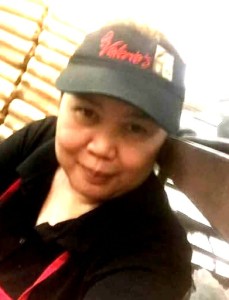Filipino dishes ease expatriates’ homesickness
ANAHEIM, California — The kitchen smells of nilagang baka, sinigang, tinola, kare-kare, bagoong and spaghetti Filipino style. It is not the Samsons’ kitchen in Naic, Cavite, but their kitchen in Anaheim.
Hazel Yleana Samson, 41, misses her hometown so much that to compensate for this she cooks the family’s all-time favorites not only during theNew Year celebration, but whenever time permits her. Jed, her 12-year-old son misses kwek-kwek, an after-school snack he used to eat back home.
The Samsons had a small company in Cavite that imported educational materials from the United States. Business became slow in the late 2011 due to stringent measures in import trade. So they decided to move to the US.
Hazel’s husband, Jessie, has dual citizenship while Jed is an American. But moving was not that simple. The Samson couple complied with CRBA (Consular Report of Birth Abroad) at the United States Consular office because Jed was registered only when he turned nine at the US Embassy in preparation for their travel. Jed was issued with an American passport in 2013.
“We arrived in America on March 14, 2014. Jessie went ahead of us. Presently, I’m waiting for my citizenship since I’m a permanent resident,” Hazel says.
Used to a comfortable life back home where she had helpers and a driver, Hazel found it difficult to adjust to life in an average American household. Their move to the United States also had something to do with Jessie’s medical condition. Jesse is on disability benefits since he can no longer work due to a congenital eye disease.
According to Hazel, it is easier for her husband to go everywhere here, and persons with disability are treated very well, given first priority in crossing the street, buying food, in the bank etc. Jessie worked at the Bank of America before he came to the Philippines. Since he paid for his social security disability insurance, Medicare and Medicaid while still working, he now reaps the benefits of these safety nets.
Homesick
Hazel was immediately struck with homesickness. Food was the first thing she missed most. She was not accustomed to steak, potatoes and bread. She knew that there were lots of Filipino stores in California, but she did not know how to take public transportation. It took her a while to master the routes from their home to the nearest grocery stores. It took her two years before she finally adjusted to weather, people, culture and “all-around work.”
Hazel believes that Jed adjusted easily in the United States. But Jed says otherwise. “The moment my mom and I boarded the plane, I was already sad. I missed home so much,” Jed says.
When school opened in September 2014, Jed was enrolled in Crescent Elementary, a public school. He was in Grade 4. Jed recalls that her mom walked him to school for 20 minutes even if it was raining. Sometimes his aunt drove him to school.
“The subjects were harder. I could not understand what my teacher was saying because of my limited vocabulary,” Jed recalls.
Jed was quite big for his age. He does not experience bullying. Sometimes he sleeps over at a friend’s house. Still, he says he misses his cousins, relatives,\ and friends in the Philippines. Hazel posts Jed’s achievements in her Facebook account.
“Jed was Grade4 when we left. He was also enrolled in Grade 4 because he speaks good English. He always has awards in school,” Hazel proudly says.
An ordinary worker
Hazel joined a crew at MacDonald’s where she was assigned in the kitchen for the cooking and preparation of foods. It was a hard work for her especially on night shifts; beside she needed to commute.
Due to the distance she stopped working at MacDonald’s. When they moved to their own house, she applied at Valerio’s Bakeshop, a Filipino-owned chain near her home. Hazel is the manager in the branch. She underwent several trainings before she qualified as a certified professional food manager.
“I was very timid. I was too shy to ask questions. Even if I drove a Volvo in Cavite, it took me five times before I passed the driving lessons here,” Hazel recalls.
Hazel did not experience discrimination. She says that her contract stated that an employee could file a complaint if he/she feels discriminated by anyone. Unlike in MacDonald’s where she was the only Filipino worker, she finds her work at Valerio’s more fulfilling because there are more Filipinos and they can speak in Tagalog.
The work ethic remains the same: be on time; give excellent costumer service. Filipinos frequent Valerio’s to satiate their homesickness with goodies.
During her days off and holidays, Hazel occupies herself with cooking Filipino favorites. She never wants Jed to forget authentic Filipino tastes even if she spends more in sourcing the ingredients.
“When I retire from work, Jessie and I want to go back to the Philippines. Perhaps, if Jed stays here, we would just visit him,” Hazel muses.
Though it did not cross her mind to live in America and becomes a citizen, Hazel says that patience and facing challenges ensure a better life for the immigrants in America.
“Work harder. Wait for the perfect time because your wishes will become a reality. Hard work always pays off,” Hazel says.




